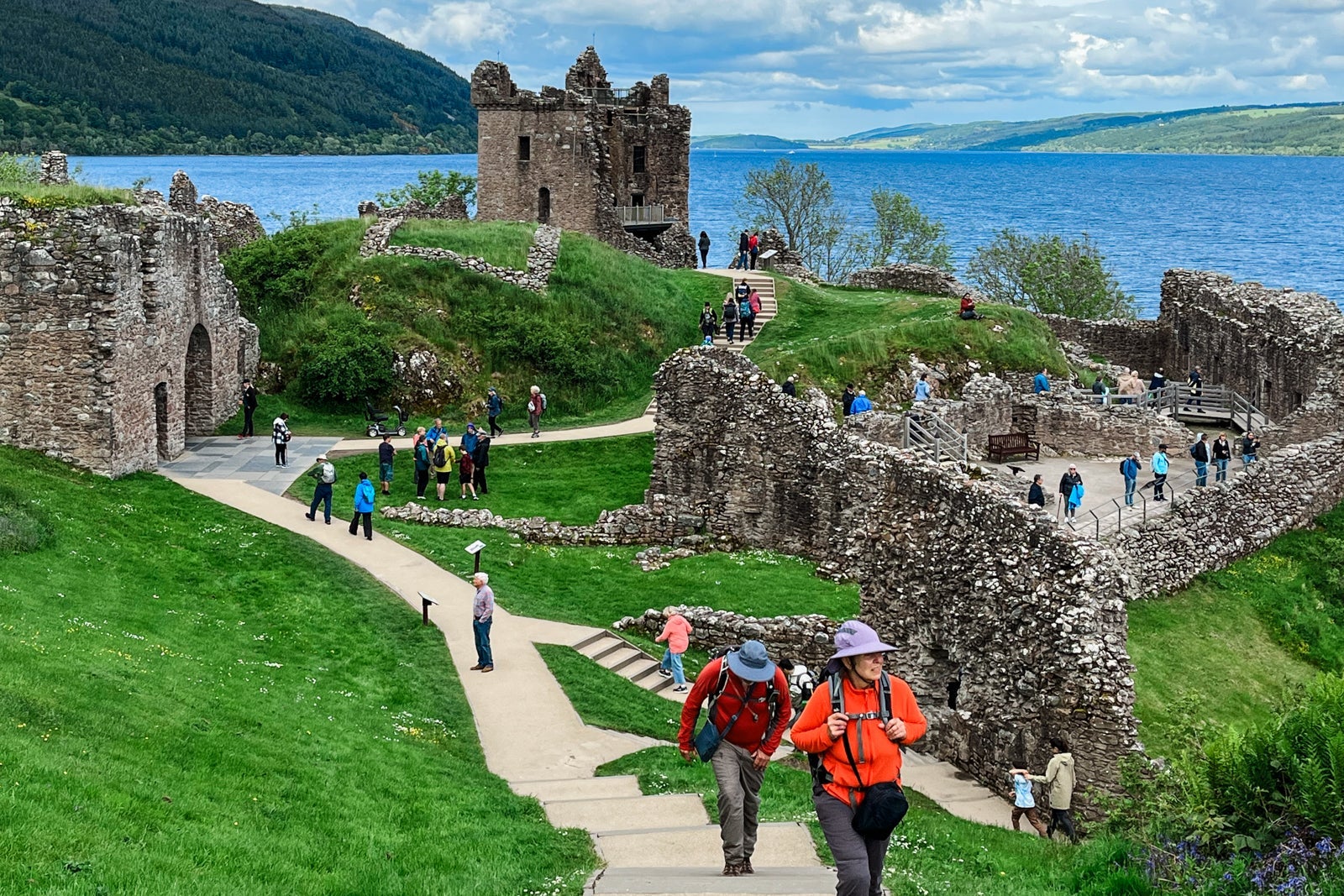Get smarter at sea: Educational cruises and the travelers who love them
It's a sunny afternoon aboard the gleaming new 190-passenger Ocean Albatros expedition ship docked at Scrabster in northern Scotland. Passengers are gathered not at the bar or the pool, but in a lecture room, where Professor Donna Heddle of the University of the Highlands and Islands in Orkney is giving a lecture on Scottish history.
In her lilting brogue, she tells the assembled guests that William Wallace, the Scottish hero of Braveheart fame, stood nearly 7 feet tall; Scotland boasts the oldest national flag in Europe; and its monarchs traditionally ruled the people, not the land (as in Mary, Queen of Scots).
Who knew?
Such historical nuggets are just par for the course on this 12-day "The Hidden Coasts of Scotland: An Expedition on the Ocean Albatros" cruise sailing to the country's northern isles and highlands. It's one of Road Scholar's so-called Floating Campuses — fully chartered cruises where everyone on board participates in the expansive educational programming.
Forget pool parties, casinos or Broadway shows. Think college campus at sea — but for adults ages 50+, which is the target audience for Road Scholar, the educational tour company. The program capitalizes on the growing trend of deeply immersive and educationally enriching trips.
Indeed, Road Scholar is not alone in offering such educational cruises. Smithsonian Journeys, National Geographic Lindblad Expeditions and Aurora Expeditions are among others that do, too.
Does such an academically oriented trip seem dry and dull to you? Step aside because the academic atmosphere is not at all boring to this group of lifelong learners. They're on board not only to enjoy Scotland but also to expand their knowledge of the destination. And these PBS-watching globetrotters embrace the educational focus like eager apprentices.
Cruise ship turned classroom
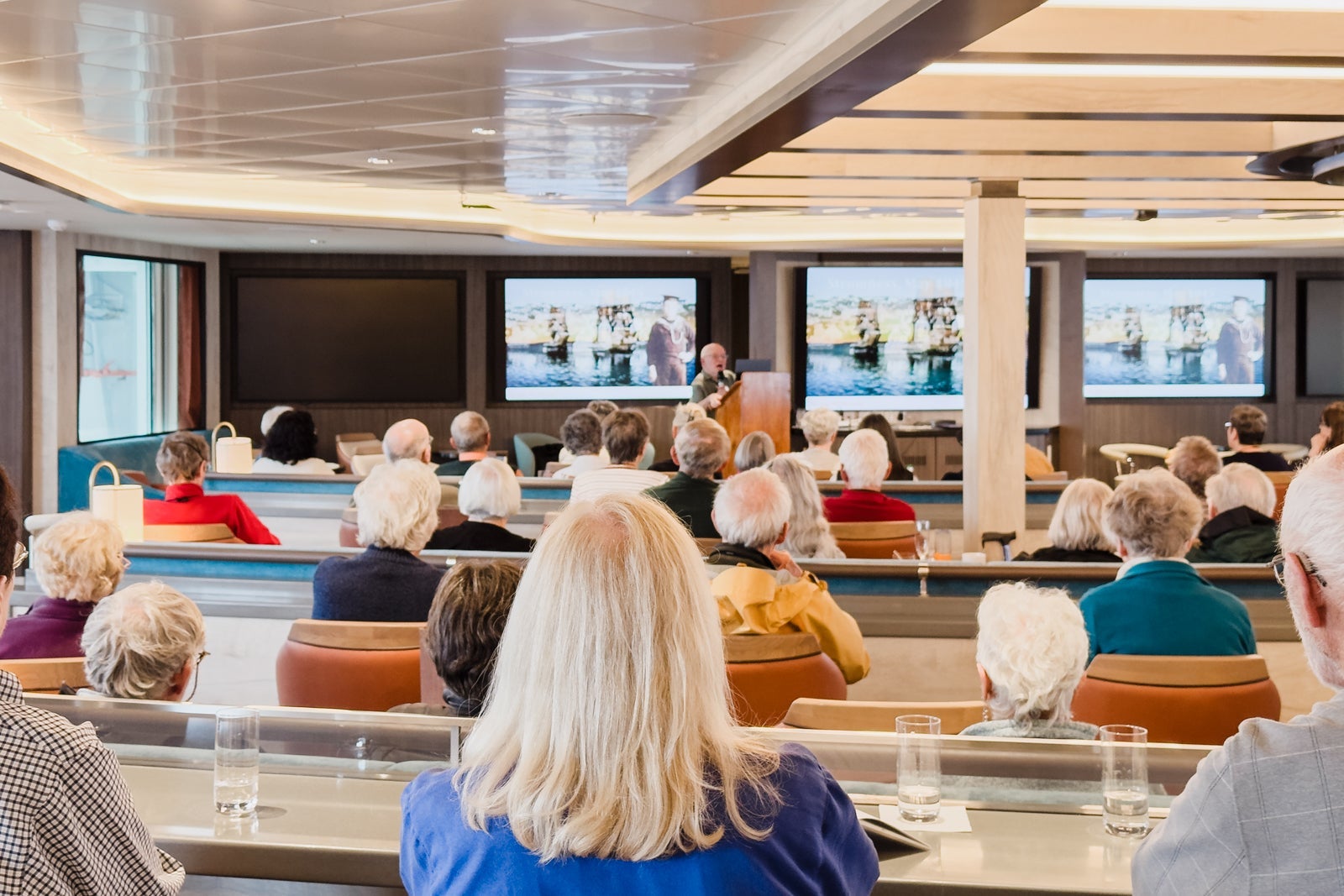
With its captive audience, a cruise is an ideal learning environment, especially when the instruction enhances the port visits.
For example, to prepare for our visit to Orkney's Skara Brae, the "Scottish Pompeii" and best-preserved Neolithic settlement in Western Europe, lecturer Steve Ragnall shared a showstopping illustrated overview of the Neolithic period in Orkney and Shetland.

Sound boring? Not at all! Other lecture topics include Scottish history, language, literature and geography. My fellow passengers and I were riveted by every one.
Heddle and Ragnall, a maritime historian and amateur archaeologist, are the two lecturers on this education-first cruise, sharing the spotlight with a bird expert and geologist. All four impart their knowledge about Scotland as part of a program that also includes book club sessions and photography lessons.
In addition to twice daily lectures (during which some passengers even take notes!), the experts are on hand throughout the voyage for casual discussions, providing guests one-on-one opportunities to dig deeper into topics of interest.
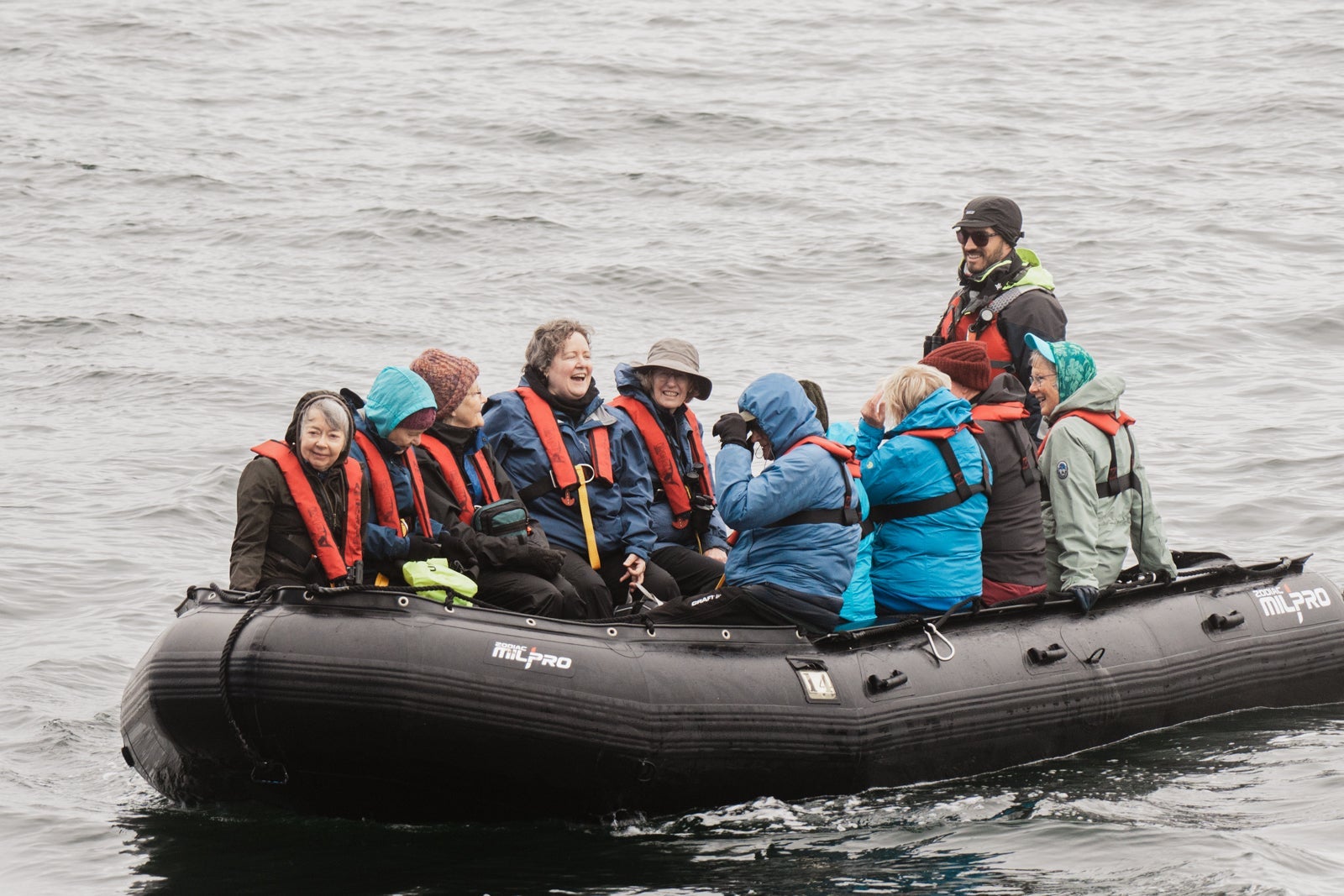
Indeed, I frequently spot Heddle and Ragnall holding court over meals in one of the ship's two restaurants. They attract the passengers like groupies to rock stars.
"I really appreciate that when we're on excursions, Road Scholar mixes up which lecturer is with my group," says cruiser Wendy Baldwin from Indianapolis, fangirling just a bit over the trip's celebrities.
Even the evening entertainment is on point: showings of a BBC documentary on Scottish marine life and the comedy "Whisky Galore!" about Scottish islanders plundering cases of whisky from a stranded WWII ship. A local ceilidh band charms everyone one evening by performing and dancing to bagpipe-driven Gaelic folk music on board.
Related: Best cruises for seniors who love to travel by sea
Study abroad on a Floating Campus
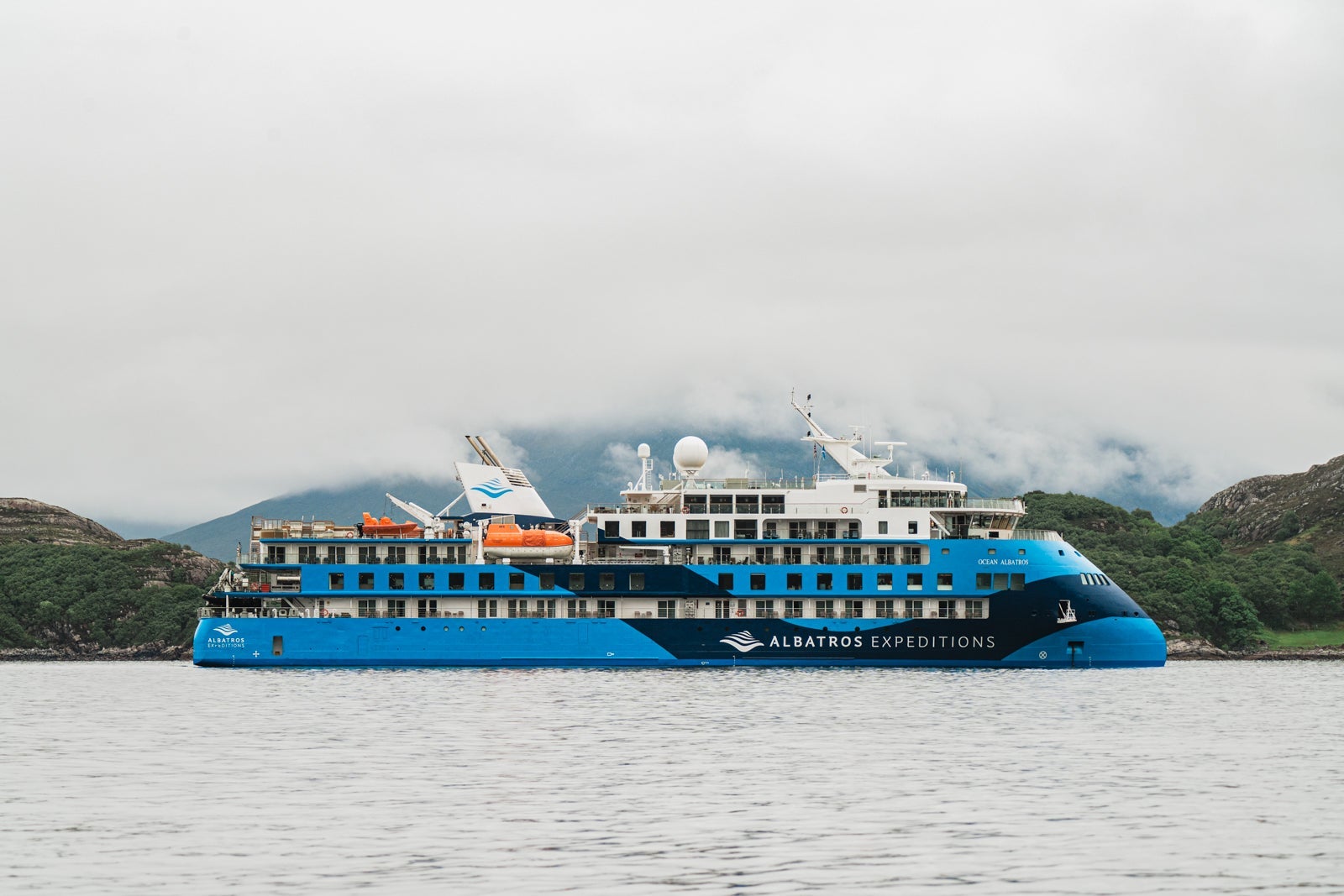
What sets a Floating Campus apart from its educational cruise competitors?
For starters, "it's important to have everyone on board be part of the program … by taking over a whole ship (unlike other Road Scholar cruises)," says Chanelle Quealy, program operations manager for the Floating Campuses. "A big part is a sense of cohesion, things like the book club [we were given the book title along with an extensive reading list ahead of time] and photography instruction."
The 112 nametag-wearing Road Scholars on board this voyage are organized into five smaller color-coded groups, each with a dedicated leader, for the daily guided "field trips" that are time staggered to avoid crowding.
Unlike other educational cruises, those groups are further segregated by two activity levels — for those who are more or less active — which facilitates the participation of everyone in this older demographic. What's more, there are no choices of shore excursions like on a typical cruise. We all visit the same sites, but how we get there varies to accommodate those who are less nimble.
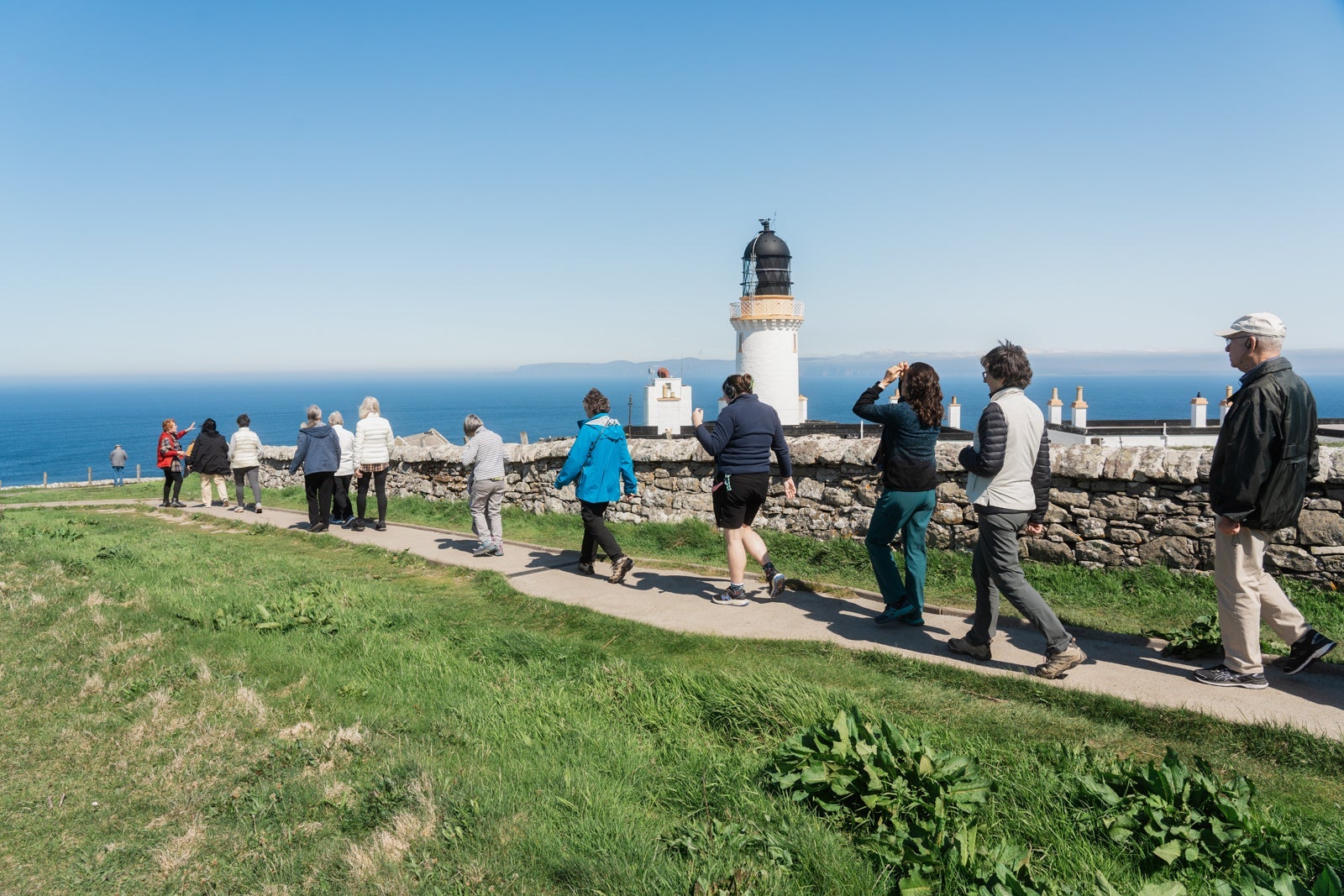
"That's (all) very unique," says Zoe Fox-Mailer, director of cruise program operations.
The program even has its own schoolroom-like "show and tell." (Remember those?) After the farewell dinner, we gather in circles by color-coded groups to share what we liked most about the experience.
Among the comments that stand out to me: "I loved how Steve's lectures brought history to life," and "This trip stimulates further research that we'll do at home." Call these cruisers nerds, if you will, but they're undeniably happy ones.
Another distinction is the itineraries, which tend toward the uncommon. On this Scotland sailing, for example, we're exploring the wild northern coastline and remote islands including the Orkneys, Shetlands and Outer Hebrides, speckled with world-class archaeological sites and castles. It's an unusual route of hard-to-visit destinations unless by ship.
"We focus on destinations you can't get to on land or by coach," says Fox-Mailer. Floating Campuses in 2024-2025 will also feature Corsica, Iceland, Lisbon to London and the "Ultimate UK" (England, Wales, Scotland and Northern Ireland).
Related: Best European cruises: 6 ships that stand out across the pond
Who are the Road Scholars? Lifelong learners with wanderlust
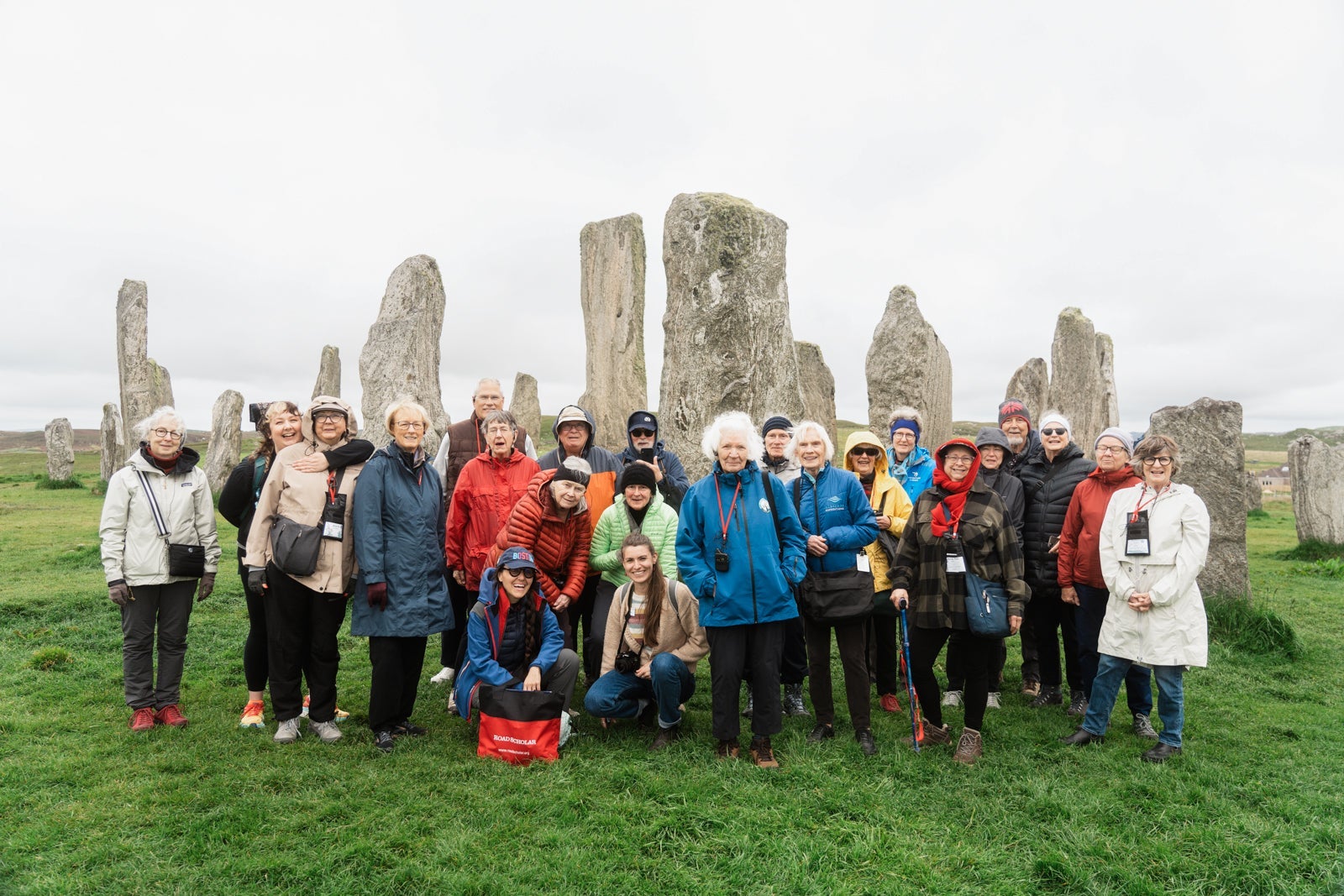
While other cruises, notably expedition ones, also feature educational content, Road Scholar trips attract especially avid students.
"Road Scholar participants are ready and eager to learn," says Heddle, who lectures on other ships. "With other groups, they have more interest in being entertained."
Ragnell, who also lectures on other ships, agrees. "Road Scholars already know something about the subject so I don't have to dumb down. Yesterday was the most questions I've had on any ship. It became a real discussion."
Take Henry and Elaine Burkholder from Meadville, Pennsylvania, who have participated in 15 Road Scholar trips. "I like to broaden my horizons and learn new things," says Henry.
"This is our first cruise where all the participants are Road Scholars, which is an advantage," says his wife, Elaine. "It's a little like being in school, but that's what we wanted."
"But you don't have to do the classes," Henry counters, noting there's ample free time, as well. Indeed, you could skip all the instruction. But why would you?
Related: The best adults-only cruises to try if you can't stand being around kids on vacation
Dione and Jim Mahoney from Columbia, Maryland, who are on their 19th Road Scholar trip, are also here for the enrichment. "I was surprised by how much I learned about Scotland," says Jim. "The lectures were unbelievable. You don't get this level of education on an ordinary cruise."
Others have a slightly different take. Wendy Baldwin, who has taken 14 Road Scholar trips, has found "more education on other Road Scholar programs." But she finds the "education more purposeful on this cruise," which is very different from the land programs. She likes the fact that the Floating Campus is a larger group than other Road Scholar programs so it offers more "opportunity to find kindred spirits to connect with…. I especially appreciate the cultural component like the music group that came on board."
Some passengers are here for the destination more than the classes. First-time cruiser Barbara Koehler from Birmingham, Alabama, wanted to see Skara Brae. And while her husband Bob Koehler was attracted by the lectures, Barbara wasn't, but she has found "most of them have been terrific. They weren't forced down your throat, either."
Indeed, it's not all study and no play aboard Ocean Albatros. Low-key quiz nights and cocktail receptions fill some evenings. People gather in the lounges or library to read or socialize during down time. Some use the small fitness center and spa. But this is mostly an early-to-bed bunch so they can be ready for the next day's learning adventure.
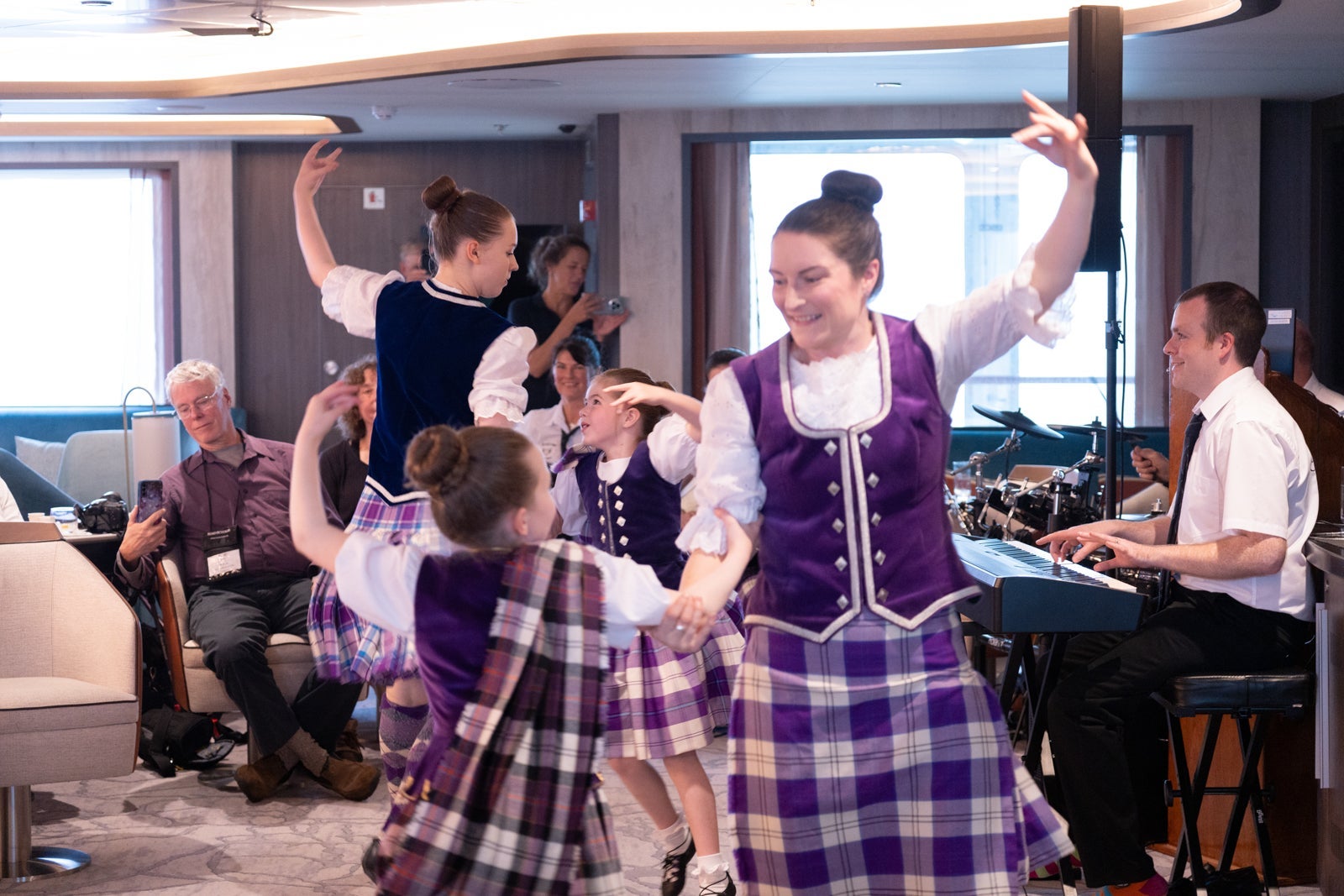
Like others, I loved the deep understanding of Scottish history and culture that I came away with, not to mention these cocktail-party gems:
- Scotland has more sheep than people.
- The 5,000-year-old Standing Stones of Callanish in the Outer Hebrides are older than Stonehenge and served as models for the popular "Outlander" TV series.
- The Scottish motto can be roughly translated as "Touch me if you dare."
Learning fun facts like these makes for better travel memories than losing money at the craps table.
Planning a cruise? Start with these stories:
- The 5 most desirable cabin locations on any cruise ship
- A beginners guide to picking a cruise line
- The 8 worst cabin locations on any cruise ship
- The ultimate guide to what to pack for a cruise
- A quick guide to the most popular cruise lines
- 21 tips and tricks that will make your cruise go smoothly
- Top ways cruisers waste money
- The ultimate guide to choosing a cruise ship cabin
TPG featured card
at Capital One's secure site
Terms & restrictions apply. See rates & fees.
| 5X miles | Earn 5X miles on hotels, vacation rentals and rental cars booked through Capital One Travel |
| 2X miles | Earn unlimited 2X miles on every purchase, every day |
Pros
- Stellar welcome offer of 75,000 miles after spending $4,000 on purchases in the first three months from account opening. Plus, a $250 Capital One Travel credit to use in your first cardholder year upon account opening.
- You'll earn 2 miles per dollar on every purchase, which means you won't have to worry about memorizing bonus categories
- Rewards are versatile and can be redeemed for a statement credit or transferred to Capital One’s transfer partners
Cons
- Highest bonus-earning categories only on travel booked via Capital One Travel
- LIMITED-TIME OFFER: Enjoy $250 to use on Capital One Travel in your first cardholder year, plus earn 75,000 bonus miles once you spend $4,000 on purchases within the first 3 months from account opening - that’s equal to $1,000 in travel
- Earn unlimited 2X miles on every purchase, every day
- Earn 5X miles on hotels, vacation rentals and rental cars booked through Capital One Travel
- Miles won't expire for the life of the account and there's no limit to how many you can earn
- Receive up to a $120 credit for Global Entry or TSA PreCheck®
- Use your miles to get reimbursed for any travel purchase—or redeem by booking a trip through Capital One Travel
- Enjoy a $50 experience credit and other premium benefits with every hotel and vacation rental booked from the Lifestyle Collection
- Transfer your miles to your choice of 15+ travel loyalty programs
- Top rated mobile app

